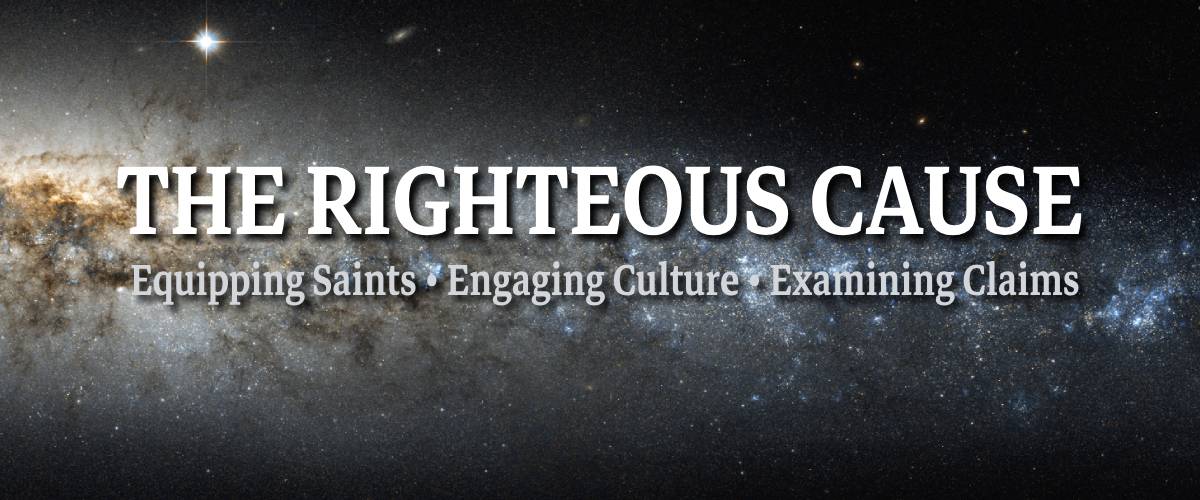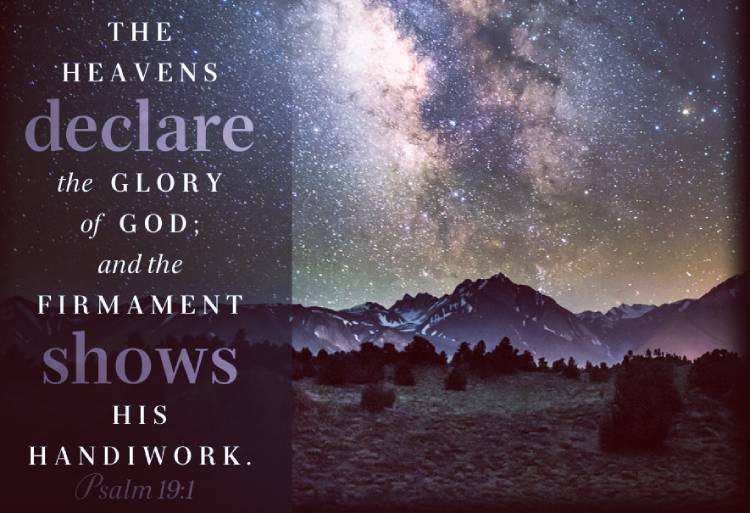Allow the Stars of Heaven to Speak to Your Heart.
Have you ever stood beneath a night sky so dark and clear that the stars seemed close enough to touch? I remember the first time I truly saw the heavens. I was camping in the mountains, far from city lights, and when I looked up, I was completely undone. The Milky Way stretched across the sky like a river of diamonds, and I felt simultaneously small and significant—small in the face of such vastness, yet significant because the Creator of all this knew my name.
That moment changed how I read Psalm 19:1: “The heavens declare the glory of God; the skies proclaim the work of his hands.” The psalmist wasn’t just being poetic. He was telling us where to look when we need to remember who God is.
The Universe That Whispers God’s Name
Before Galileo ever pointed a telescope skyward in 1609, Scripture declared something that must have seemed impossible to ancient readers: the stars are innumerable. Think about that for a moment. The ancients could count perhaps a few hundred stars with their naked eyes. Yet Jeremiah wrote that “the host of heaven cannot be numbered,” and Genesis compared them to grains of sand on the seashore—countless, beyond human comprehension.
When Galileo finally trained his primitive telescope on the night sky, he was astounded. He called the stars “innumerable.” Modern astronomy has proven the Bible right in ways that should take our breath away. Scientists estimate there are more stars in the universe than grains of sand on all the beaches of Earth. Some estimates suggest 200 billion trillion stars. That’s a two followed by twenty-three zeros.
Yet Scripture knew this truth millennia before we had the technology to confirm it. How? Because the Author of Scripture is the Architect of the cosmos.
When Science Catches Up to Scripture
I love how the book of Job asks a question that wouldn’t be answered for thousands of years: “Do you know the ordinances of heaven?” (Job 38:33). When this was written, humanity had no concept that the universe operated according to fixed laws. The movements of celestial bodies seemed random, unpredictable, even magical.
But God knew. He knew because He wrote those laws into the fabric of creation. When Newton discovered gravity and Kepler unlocked the secrets of planetary motion, they weren’t creating truth—they were discovering what God had established from the beginning. They were reading God’s handwriting in the heavens.
Consider this stunning detail: while ancient Egyptians believed in a flat earth supported by pillars, and Greeks imagined Atlas carrying the world on his shoulders, Job declared that God “hangs the earth on nothing” (Job 26:7). Isaiah spoke of God sitting “above the circle of the earth” (Isaiah 40:22). Luke’s gospel even hints at a spherical, rotating earth when it describes Christ’s return happening simultaneously during night for some and day for others (Luke 17:34-36).
These aren’t lucky guesses. They’re evidence of divine inspiration.
The Story of the Dimming Comet
In 1973, astronomers were buzzing with excitement about Comet Kohoutek. Predictions promised the “comet of the century”—a spectacular show with a tail stretching across a sixth of the sky, visible even in broad daylight. Television specials were planned. Schools organized viewing parties. Scientists staked their reputations on its brilliance.
Then it arrived. And it was… disappointing. Hundreds of times dimmer than promised, barely visible even with binoculars. It became a legend, but for all the wrong reasons—a monument to human overconfidence.
This story reminds me of what Scripture teaches about human wisdom. Paul wrote that “the wisdom of this world is foolishness with God” (1 Corinthians 3:19). If our most brilliant scientists can miscalculate something as close as a comet in our own solar system, how much should we trust their speculations about the origin of the universe? How much weight should we give to theories that explicitly exclude God from His own creation?
There’s a saying among astronomers: “A person who becomes wedded to the theories of one generation will find himself widowed in the next.” Scientific theories come and go like fashions. But Scripture remains, unchanging and true.
The Universe Is Running Down
Here’s something that should make us stop and think: The Bible declared nearly 2,000 years ago that the heavens “will wear out like a garment” (Hebrews 1:11). For centuries, this seemed odd. Weren’t the heavens eternal and unchanging?
But modern astronomy has confirmed what Scripture always said: the universe is running down. The sun burns four and a half million tons of fuel every second, energy lost forever into space. Stars explode. Comets disintegrate into meteor showers. Even Earth itself gradually loses rotational energy. Everything tends toward decay, not improvement.
This is the opposite of evolutionary philosophy, which assumes everything is getting better, more complex, more organized. But observation sides with Scripture: we live in a universe that is magnificent yet dying, glorious yet groaning, waiting—as Paul tells us—for redemption (Romans 8:22).
The One Who Holds It All Together
Pastor Rick Warren writes, “God is the One who made all things, and all things are for his glory.” When I look at the night sky now, I don’t just see stars. I see a love letter written in light. I see evidence of a God who is both infinitely powerful and intimately personal.
The God who measured the universe with the span of His hand (Isaiah 40:12) is the same God who knows when a sparrow falls (Matthew 10:29). The God who calls each star by name (Psalm 147:4) knows your name, too. The God who “upholds all things by the word of his power” (Hebrews 1:3) is holding you right now.
This is the beautiful paradox of creation: it makes us feel small enough to be humble and important enough to matter. When the psalmist gazed at the heavens, he asked, “What is mankind that you are mindful of them, human beings that you care for them?” (Psalm 8:3-4). The answer isn’t found in our significance but in God’s grace. He cares because He chooses to care. He loves because love is who He is.
An Invitation to Wonder
So tonight, if those rain clouds pass, I invite you to step outside. Look up. Really look. Let the stars preach to you. Let them tell you about a God whose creativity knows no bounds, whose power sustains galaxies, whose wisdom wrote the laws of physics before humanity took its first breath.
And remember: the same God who hung those stars in space knows every detail of your life. The same God who keeps planets in their orbits cares about your struggles, your dreams, your fears. The same God who said, “Let there be light,” and created a hundred billion galaxies, also says to you, “You are mine. You are loved. You matter.”
The heavens are declaring God’s glory right now, this very moment. The question is: are we listening?
As you go through this week, take moments to notice creation—not just the grand cosmic displays, but also the intricate detail of a flower, the perfect geometry of a snowflake, the complexity of a single living cell. All of it speaks. All of it points beyond itself to the One who made it.
And when you look up at the stars, remember: you’re not just looking at distant balls of burning gas. You’re looking at God’s signature. You’re seeing His glory spelled out in light that has traveled for years just to reach your eyes in this moment.
Let that change how you pray. Let that change how you worship. Let that change how you live.
Prayer: Creator God, when I consider the heavens, the work of Your fingers, the moon and stars You have set in place, I am overwhelmed. Thank You for revealing Yourself through creation. Thank You that Your invisible qualities are clearly seen in what You have made. Help me to never take for granted the glory that surrounds me. And help me remember that the same power that flung stars into space is available to me today. In Jesus’ name, Amen.
“The heavens declare the glory of God, and the sky above proclaims his handiwork. Day to day pours out speech, and night to night reveals knowledge.” — Psalm 19:1-2

